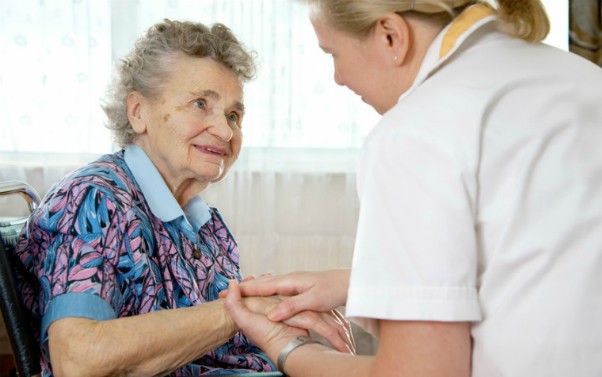
 Two guides for Community Care Inform Adults aim to provide social workers with a clearer understanding of continuing healthcare. Both guides are written by Morag Duff, an independent specialist continuing healthcare consultant. Inform Adults subscribers can read the full guides:
Two guides for Community Care Inform Adults aim to provide social workers with a clearer understanding of continuing healthcare. Both guides are written by Morag Duff, an independent specialist continuing healthcare consultant. Inform Adults subscribers can read the full guides:
Below, is an excerpt from the guide to the legal framework around continuing healthcare, on primary health needs.
NHS continuing healthcare can be a challenging area for social workers. It requires an understanding of complex legislation and guidance, and hinges on the boundary between the responsibilities of the NHS and local authority social services. And the implications for service users are huge. If entitled to continuing healthcare, their care is free. If not, they may have to shoulder the cost of care themselves.
What is a primary health need?
The concept of a primary health need is central to deciding whether the entirety of someone’s care needs should be met by the NHS or the local authority. Put simply, an individual has a primary health need if, having taken into account all their health and social care needs, it can be said that the main aspects or majority of the care they require is focused on addressing or preventing health needs (National framework for NHS continuing healthcare and NHS funded nursing care, practice guidance, paragraph 3.5).
The national framework states (practice guidance, 2.1) that a healthcare need is one related to the treatment, control or prevention of a disease, illness, injury or disability, and the care or aftercare of a person with these needs (whether or not the tasks involved have to be carried out by a health professional).
Paragraph 33 of the national framework states that if an individual has a primary health need they are eligible for NHS continuing healthcare and therefore the NHS is responsible for meeting all of that person’s assessed health and social care needs, including accommodation if this is part of the overall need.
The “test” of whether someone has a primary health need emerges from the Coughlan court judgment (R v North & East Devon Health Authority ex parte Coughlan [1999] EWCA Civ 1871), which ruled that nursing care was the responsibility of the NHS under section 3 of the National Health Service Act 1977 (which subsequently became section 3 of the NHS Act 2006). But the court did allow that some nursing care could be provided by local authorities, depending on the outcome of a two-part test.
The test focused on the concepts of the “nature” of the needs (whether they were of a type that a local authority could be expected to provide), and the extent of those needs (whether any health needs were incidental and ancillary to legitimately provided social care needs).
Of course, the question then arises which needs are “of a nature” beyond the local authority’s compass and what is incidental and ancillary to social care needs. The national framework gives four key characteristics of need (nature, intensity, complexity and unpredictability) that are key to finding the answer.





 Assistive technology and dementia: practice tips
Assistive technology and dementia: practice tips  A trauma-informed approach to social work: practice tips
A trauma-informed approach to social work: practice tips 




 Find out how to develop your emotional resilience with our free downloadable guide
Find out how to develop your emotional resilience with our free downloadable guide  Develop your social work career with Community Care’s Careers and Training Guide
Develop your social work career with Community Care’s Careers and Training Guide  ‘Dear Sajid Javid: please end the inappropriate detention of autistic people and those with learning disabilities’
‘Dear Sajid Javid: please end the inappropriate detention of autistic people and those with learning disabilities’ Ofsted calls for power to scrutinise children’s home groups
Ofsted calls for power to scrutinise children’s home groups Seven in eight commissioners paying below ‘minimum rate for home care’
Seven in eight commissioners paying below ‘minimum rate for home care’
 Facebook
Facebook X
X LinkedIn
LinkedIn Instagram
Instagram
My experience is that very little is ever deemed a primary healthcare need and service users and/or the local authority have to pay for their care needs to be met in the vast majority of cases. This is bewildering for service users/patients and their families – ‘but she needs care because she’s got cancer/heart failure/has had a stroke. She’s ill!’ And the social worker has to break the news that care will not be free under the NHS that everyone has paid into. (Some time ago I had experience of a person in a semi-vegetative state who needed constant nursing monitoring as she couldn’t explain when she had a life-threatening chest infection, etc, being refused Continuing Care funding under the NHS.) And don’t get me started on Alzheimers and dementia which are scarcely regarded as illnesses at all but are somehow social conditions like being unfortunate enough to live on the wrong side of the railway tracks and for which patients and their carers have to bear the brunt of the care that is needed.
Over 160,000 people are eligible for NHS CHC over the course of a year at a cost to the taxpayer of £4.7 billion (and rising) so its a considerable expense and there is not a bottomless pot of money to pay for it. This does not include NHS Funded Nursing Care payments to care homes, Section 117 aftercare or joint health and social care funding all of which the NHS also funds. Spend on NHS CHC is on a par with spend on primary care. The budget for NHS CHC is the same budget that pays all other NHS services such as hospitals / district nursing / dieticians / physio / dentists / speech and language / paediatric nursing / mental health nursing etc. etc. The NHS is also funding social care through Better Care Fund transfers of money.
Its unfair to blame the NHS whilst presenting the LA as a victim in this. You do not hear the families of the eligible complaining – only those who’s relative is not eligible which under current policy means they may have to fund their own care in full or in part. People are living longer. Whilst some people rightly have their care fully funded the hard reality is that there is also the need to manage people’s expectations about what society is able to fund and what else should be reduced to offset that expenditure.
It’s not a question of “blaming” anyone. It is about people with very complex conditions that clearly have nothing to do with social care being deemed not to have a “primary health need”.
If what we need to do is “manage people’s expectations” then let’s do that in a fair and open way which everyone can understand, rather than removing funding by telling people that they no longer meet the criteria – when they have a deteriorating condition and have deteriorated. The only victims in this debate are the service users. It is not, and should never be, about them and us between local authorities and the NHS. We’re on the same side – that of chronically sick and disabled people – and it’s all public money anyway.
Well said.
The best thing I ever read about Continuing Care was by Prof Luke Clements but I can no longer find it online. He observed that having moved a lot of people out of NHS institutional care (no argument there), the NHS has abrogated any responsibility for ‘long term care’ in the community thus this is now shunted into social care land with all of the costs to be borne by either LAs or self funders, the latter of whom who of course are cross subsiding the LA funded clients in turn by paying 50% more for exactly the same care home place. You see it in many other ways, from the way the minimum wage homecare workforce is now expected to do many of the jobs of a district nurse. The bottom line is we have aged and become more complex as a society so the 160,000 quoted is a drop in the ocean compared to the numbers of people that are chronically sick and ill and deteriorating with dementia or Parkinson’s or kept alive through modern day medicine…..but are deemed the responsibility of social care. SO much time and energy is spent by people and institutions fighting over a farcical boundary often at the most distressing time of their lives. As Jill says we have lost all sight of the people that need support – they shouldn’t be blamed for this. There is such a dishonesty about the system to be told that they aren’t practically dead enough to receive NHS CC (working with people with Parkinson’s I’ve heard that said many a time) when for many of the older generation they thought that’s what they’d paid into.
The Luke Clements article is still there:
http://www.rcpsych.ac.uk/pdf/OA-11-35%20NHS_Funding_for_CC_revised_Guidance.pdf